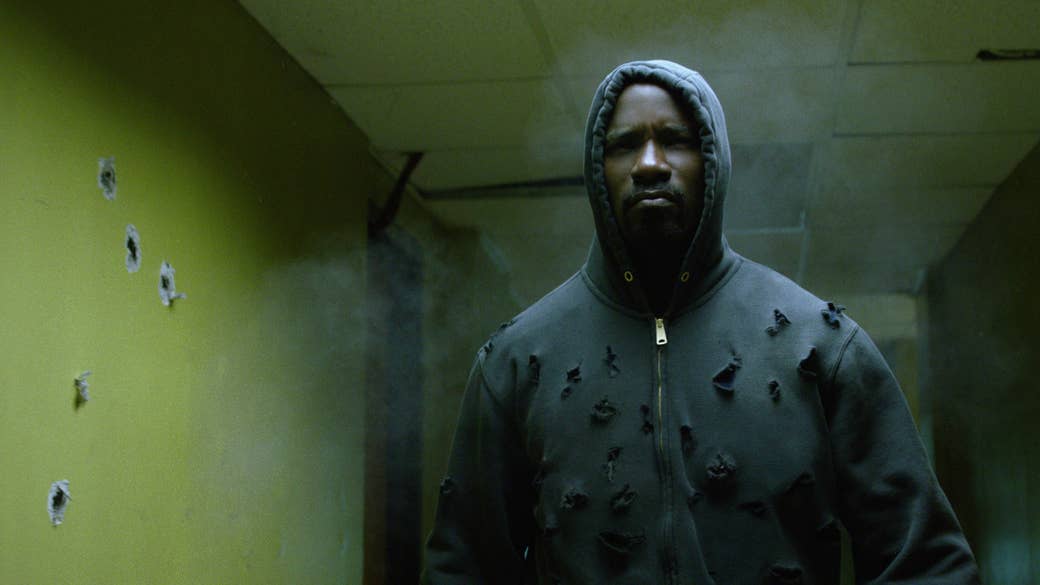
Marvel’s Luke Cage is packed with all the excitement you’d expect from a live action series. Bullets fly, windows smash, and several things explode, but by far the most striking image is that of Luke, played by Mike Colter, striding confidently in a bullet-riddled hoodie, unfazed by the firepower coming his way. The immediate thought is of Trayvon Martin, a 17-year-old black boy who, while wearing a hoodie, was shot and killed by a neighbourhood vigilante in Florida in 2012. In the aftermath of Martin’s death, one photograph in particular – in which he is looking straight into the camera, hood up – remains haunting. The hoodie has emerged as a “cultural icon of doom”, a sartorial choice that speaks to a sort of “unforgivable blackness”: often worn in protest now, but essentially just an ordinary garment worn by so many black boys and men. On Facebook or Twitter, you can watch videos of unarmed black men and women being shot and killed by the police in real time. Now you can log on to Netflix and watch a show where a black man is bulletproof. It is well and truly a marvel.
For the man assigned the colossal task of playing the world’s first bulletproof black man, the pressure is being worn very lightly. “I haven’t given it that much thought,” Colter told journalists at the Luke Cage event in Paris in late September. “We’re creating entertainment television that’s supposed to entertain and make you think. We can’t run away from the fact that some of the images are symbolic.” In fact, Colter embraces it. “If you’re a black person imagining a superhero, the first thing you would want is a bulletproof superhero that would not be shot and killed, because we all know that that’s the first thing,” he says. “No one signs up to be that kind of symbol.” Despite not having anticipated the gravity of his role, Colter recognises its significance and views it as an “honour of sorts”. This is in no small part due to the fantastical element of the character. His role, Colter concedes, is significant because it’s “like a fantasy”.
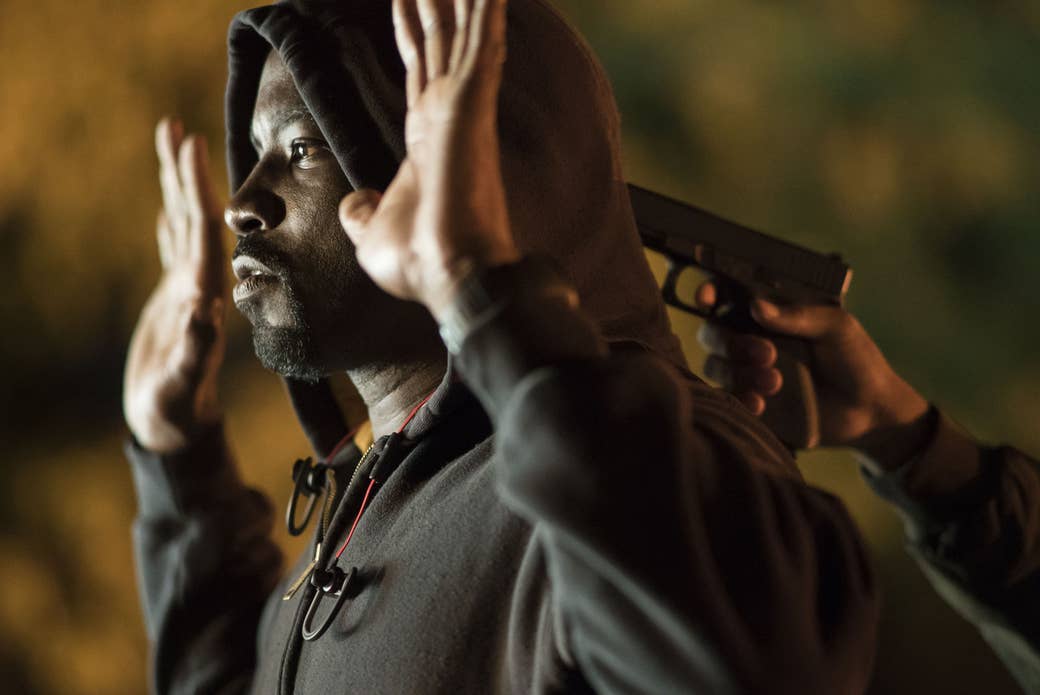
Cheo Coker, the series’ showrunner, doesn’t shy away from the Trayvon Martin comparison. In fact, he actively invites it: His choice to include the hoodie was supposed to incite such conversation. “We have a hero that of course is wearing a hood because it’s functional – it just happened to be what he was wearing at the time that he basically becomes a hero,” Coker said in an interview with BuzzFeed UK. “But then, at the same time, it becomes his cape. And then you have this thing where we are redefining what a black man in a hoodie means.” The scene’s origins were a lot less politically lofty: It was in fact inspired by the scene in The Terminator where Arnold Schwarzenegger keeps on coming despite being shot. “I don’t think we fully realised the power of having a black man in a hoodie walk down a hallway with bullets bouncing off him,” Coker admits. “Because of everything that’s happening now, and people see that, they were just like, ‘What?!’”
One thing Coker insists on is no ambiguity. “That’s what everyone expects,” he states. “Everyone expects them to be nice and PC and don’t wanna offend anybody, but you can’t make art like that.” As well as creating a show that is “deeply rooted in its geekdom”, Coker stresses the importance of portraying the nuances of black culture in Luke Cage. “When I see a show like Atlanta, I don’t know how the hell Donald [Glover] got away with it. There are things in that show that are so uniquely Atlanta and just so far off the deep end of the black experience, I have no idea how he snuck it past. … I think people might, when they see the full series of Luke Cage, there might be something like, ‘Man, I can’t believe it went there.’” Coker says this is exactly what’s great about the show: You get to see the nuances. “You have to tell the best story that you can tell,” he asserts, “but you don’t have to hold back.”
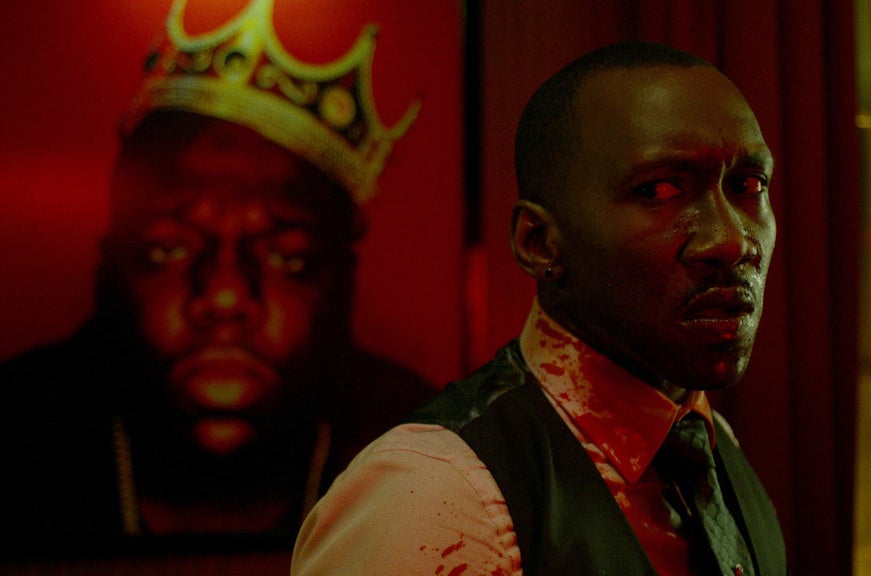
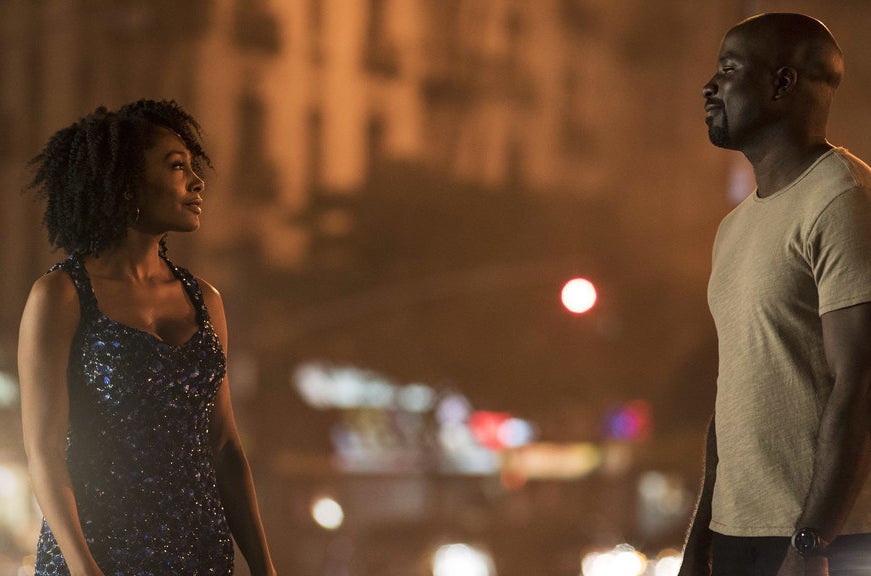
Indeed, from the very first episode, there is neither doubt nor ambiguity that Luke Cage is phenomenally black. From black barbershop chatter, to the appearance of black literature (Luke is seen reading Ralph Ellison’s Invisible Man in the pilot), to its handpicked hip-hop soundtrack, Coker is relentless in his rule of “no ambiguity”. But the creator and executive producer insists that rather than being a forced decision, it’s just him. “These are all things that have been on my mind forever,” he explains. “I wanted there to be a fastidious Luke Cage who might not have really read until he got to prison, but being subtle about that. At the same time, you’re putting him in the place where some of these things came up. Chester Himes lived in Harlem, James Baldwin lived in Harlem, Ralph Ellison lived in Harlem, and so when you have a character that’s based in Harlem, you can basically talk about all of it.”
Still, one of the things Coker appreciates most about the show is its ability to be topical without losing sight of the fact that it’s a superhero show. He describes this as the “Marleyisation” of the Marvel universe – while politics are definitely present in the series, just as they are in Bob Marley's deceptively tuneful songs, they don’t overwhelm the acting or storytelling. “Think about a song like [Marley's] ‘Them Belly Full (But We Hungry)'," Coker says. “You can hum it, and it’s just great. But when you get deeper into it … he’s talking about oppression. He’s talking about not laying down. He’s talking about hungry mobs and angry mobs. There’s a lot going on.” For Coker, Marley's music, much like Luke Cage, manages to be “poetic” and “relaxing” while also depicting deep politics.
This isn’t anything new in the world of comic books, however – good comic books have always been able to do that, Coker says. “You can always use comic book heroes as a way to deal with whatever you’re facing in the world and as a symbol. … That’s not just true of Luke Cage. It’s true of Superman. It’s true of Captain America. That’s kind of the whole opportunity that these characters have always really offered, which is symbolism.”
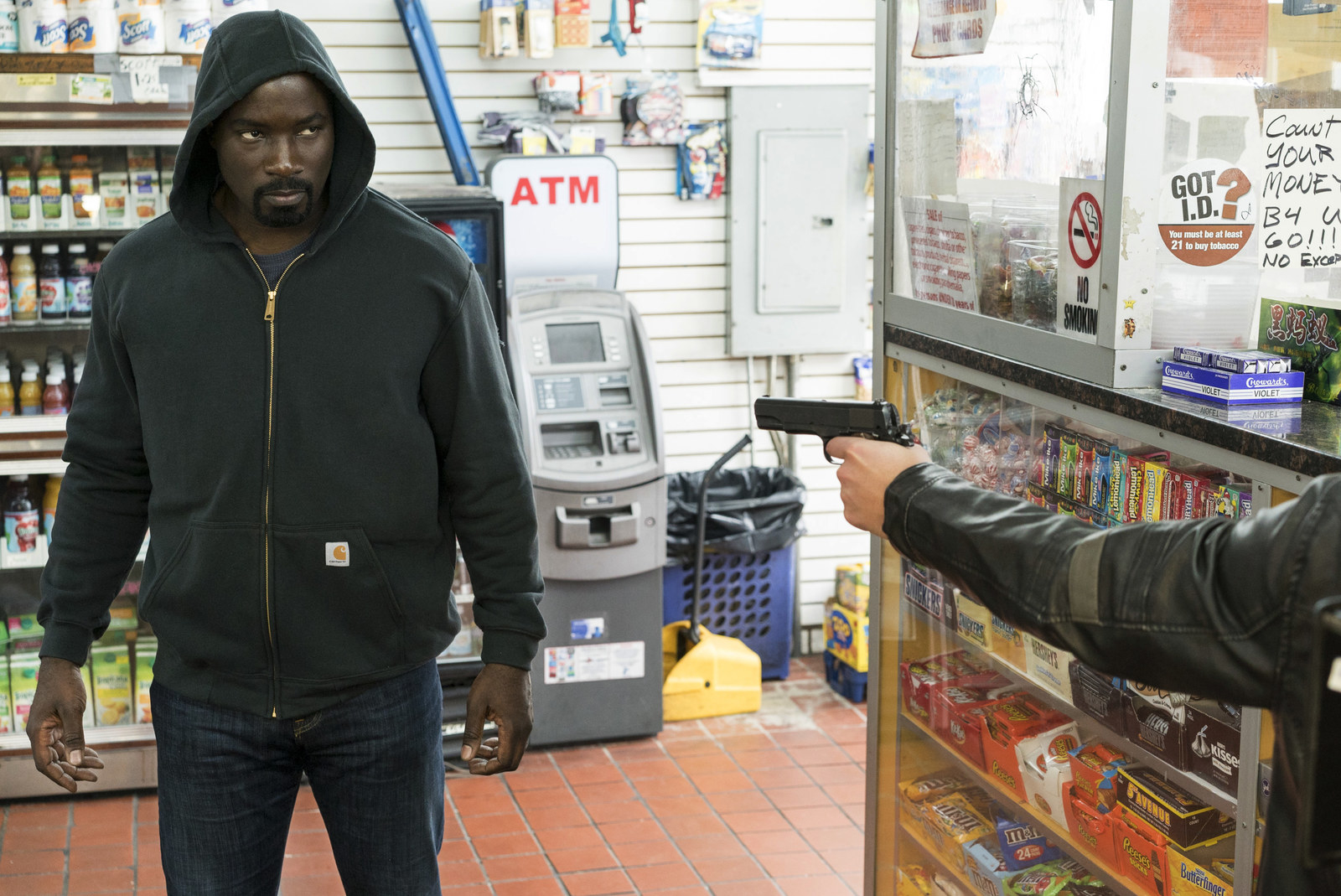
Of course, the wonderfully black fantasy of Luke Cage sits in a larger mosaic of blackness in the Marvel universe. People can now watch a black superhero TV show, and, soon, Black Panther, a black superhero movie. For now, though, Luke Cage is the blackest thing Marvel’s done yet. The show's writers room is majority-black, which Colter describes as “only fair”. “The black experience is so specific,” the actor says. “We can’t begin to try to understand what it’s like to be a black person. Most of the stuff that they encounter or that they experience is not something that is seen by any other human eye. It’s subtleties that no one else would pick up on.” Depicting these subtleties and shades of blackness makes Coker’s job as showrunner even harder. As one of the few black male showrunners (“We all know each other,” says Coker, smiling), it’s a huge responsibility, but he tries not to think of the pressure that comes with it. Although he admits that being one of the few means he’s essentially taking on more than just the job, Coker chooses to “push forward” rather than being paralysed by or “obsessed with it”.
And “pushing forward” means the politics cannot be separated from the storytelling. Luke Cage – both character and show – are black as hell, arriving in a time when civil rights activism has diversified in ways previously unimagined. But in a world where blackness alone is a thing that can get you killed, is the American audience ready to watch a show about a bulletproof black man?
